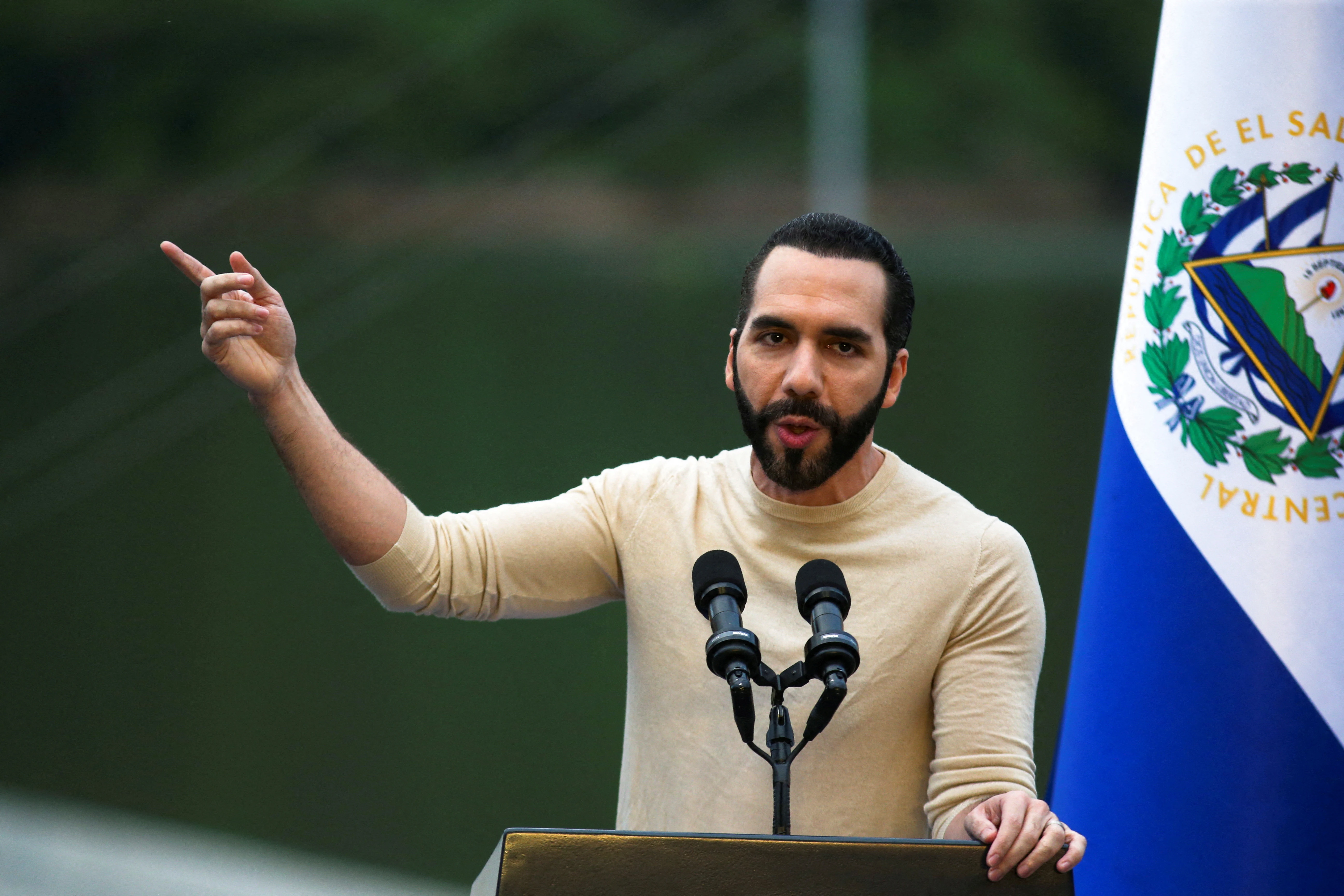El Salvador's Bukele says 'bitter medicine' ahead

Stay tuned with 24 News HD Android App

El Salvador's popular gang-busting President Nayib Bukele was sworn in for a second term Saturday but warned the country may need to swallow some "bitter medicine" to improve the economy.
Raising his hand at the National Palace in the capital San Salvador, the 42-year-old took the oath of office in front of a packed crowd of supporters.
He is set to govern for another five years with near-total control of parliament and other state institutions after his New Ideas party dominated in legislative polls on the back of a brutal but popular gang crackdown.
Bukele, who unapologetically describes himself as a "cool dictator," enjoys sky-high approval ratings due to his heavy-handed campaign against criminal gangs, credited with returning a sense of normalcy to a violence-fatigued society.
The campaign has drawn criticism from rights groups, but has made Bukele the most popular leader in Latin America, according to a regional poll, and the envy of many of his peers.
He was reelected in February with 85 percent of the vote.
His popularity also translated down the ballot into a near-clean sweep for Bukele's New Ideas party in the Legislative Assembly, where it took 54 out of 60 seats.
Ideological allies like Argentine President Javier Milei and Donald Trump Jr, son of the former US president, attended the ceremony, which included a military parade and a flyover from planes leaving trails of blue and white -- the colors of the Salvadoran flag.
Experts however warn Bukele's extended honeymoon with voters may be nearing its end as economic worries overtake safety concerns, amid high government debt and fast-rising prices in a country where more than a quarter of the population lives in poverty.
The president acknowledged El Salvador's "important problems," starting with economic conditions.
"In this new treatment to heal the economy," he said from the palace balcony, "perhaps we will also have to take bitter medicine... to be cured of the bad economy."
Though he laughs off accusations of authoritarianism, he was only able to seek reelection after a loyalist Supreme Court ruling allowed him to bypass a constitutional ban on successive terms.
"What he has demonstrated is that the law is irrelevant and that he can do whatever he wants, how he wants," public policy expert Carlos Carcach told AFP, describing Bukele as an "all-powerful" president.
Gang crackdown
With his preferred outfit of jeans and a baseball cap, millennial Bukele came to power in 2019 promising to crush the country's gangs, to which he attributes some 120,000 murders over three decades -- more than the 75,000 lives lost in El Salvador's civil war from 1980 to 1992.
And he did just that, rounding up more than 80,000 presumed gangsters under a state of emergency in place since March 2022 that allows for arrest without a warrant.
He also built the largest prison in Latin America to hold them.
The result, Bukele has boasted, has been turning "the murder capital of the world, the world's most dangerous country, into the safest country in the Western Hemisphere."
But it has come at a cost.
Human Rights Watch and Amnesty International have reported the killing and torture of detainees, and thousands of innocent people -- including minors -- among those arrested.
'Period of prosperity'?
The president will have even more power in his second term, after the legislature approved a reform making it easier for him to push through constitutional changes.
Many hope he will use it to fulfill his reelection promise of "a period of prosperity ahead" in a country where the poverty rate has swelled to more than 27 percent and food inflation has outpaced salary increases.
Another problem for Bukele: El Salvador's public debt has skyrocketed on his watch to more than $30 billion, 84 percent of GDP.
Growth is forecast to slow to three percent this year from a higher-than-expected 3.5 percent recorded in 2023.
In a bid to revitalize El Salvador's dollarized, remittance-reliant economy, Bukele in 2021 made bitcoin legal tender -- the first country in the world to do so.
He invested an undisclosed amount of taxpayer money in the cryptocurrency, despite warnings about volatility risks from global institutions.
Since then, bitcoin has dropped to as low as $16,000, only to rocket in March to a record of $73,797.
